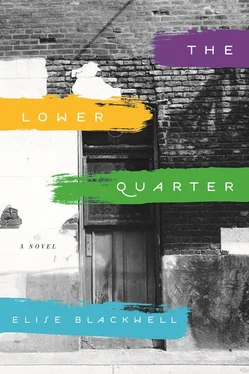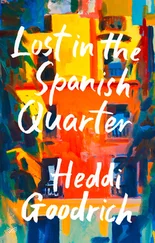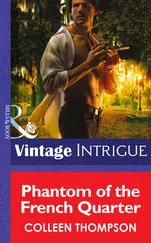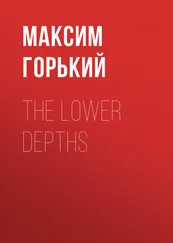“I’m really sorry, but Clay said it was important that I hold on to the painting for two weeks, that I wasn’t to give it to you right away. All that my fucked-up brother knows is that he sold it to some fence who said he had clients in the Marigny.”
Eli straightened, seemed brighter or lighter than before. “The Marigny — are you sure? I thought it was in an alarmed safe uptown.”
His voice stirred something in Johanna, which she only slowly recognized as hope.
Marion looked sideways and cocked her head before straightening it. “I’m not sure that it’s right, but I’m sure that’s what he said.”
“What day is it?” Eli asked no one in particular.
“What do you mean?” Marion asked. “You mean what day did he sell it?”
“What day is it today?” Eli asked and then answered his own question. “It’s Thursday.” He turned back to Johanna, a smile now small but growing on his beautiful lips. “I think I can help after all. I think I can actually help.”
It took her a long time to tabulate what had happened, and after she had managed that, she still did not know what it meant. A day earlier, even an hour earlier, she would have welcomed this moment as a herald of revenge. Now she believed that Eli’s misunderstanding had been instead a deeper understanding: What she really wanted was not a name on a piece of paper or a canvas that would be a means to an end but rather the return of the painting itself.
Eli
While it might have horrified him only a week ago to think that he’d return to his old profession, Eli felt free and light as he rounded the pink house and pried open the window next to the back porch — the easiest entry he had ever encountered, which somehow made sense for a house containing such a reckless collection.
The odds were against it, of course, but not by so very much. The Marigny was not a large neighborhood, and surely the Broussard house accounted for at least three-quarters of its art. Its collection, too, was a hodgepodge and likely sloppily sourced.
Johanna had not wanted to leave her place unguarded, and Eli was unwilling to leave her alone in it overnight. She resisted his staying over, at first. “I’m not equipped for guests,” she said, and finally told him that no one but she had ever slept in her apartment, with the exception of the small dog she had taken in temporarily. Eli had told her he didn’t mind sleeping on the sofa, but she said that wasn’t the problem.
“Gerard Fontenot will realize that the painting is gone, and then he will look for it,” Eli told her. “The chances of him looking for it here are very high.”
“Clay said two weeks, and his fault has never been stupidity,” Johanna said, but Eli’s argument was still persuasive. She showed him the drawer with her knives, her can of pepper spray. They asked Peter to call the police if he saw the man with the suit. That this man probably was the police made this a faulty backup plan, Eli knew, and so he hoped that a backup plan was all it was. He weighed the risks, though, and knew that he could never get the painting back if it wound up in one of Gerard Fontenot’s safes somewhere in the world, unless perhaps he made it his life’s work at the Lost Art Register.
Johanna’s bed was small and their situation unsettled, but he found it surprisingly easy to fall asleep. He woke very early, though how early he wasn’t sure because his watch and phone were across the room and Johanna didn’t seem to have a clock.
Lying as still as possible so he wouldn’t wake her, he watched her sleep and thought through his plan, such as it was. Her nostrils flared slightly with each inhale, but she was silent and otherwise motionless in her sleep.
Eli was glad he knew the Broussards, or at least had conversed with them twice. If they surprised him, he might even be able to talk his way out of it, particularly if they were guilty of buying stolen goods. Cats, he remembered, and was glad that there had been no sign of dogs. He had not seen any evidence of an alarm system, but neither had he conclusively determined the absence of one. His former self would have been disappointed; he had become an amateur.
He made love to Johanna again after she woke up, holding her waist and looking down at her, again failing to understand his great good luck that she would have anything to do with him at all. That his status with her might be temporary hurt, but he would accept whatever was given to him and on any terms.
Afterward, while she made coffee, she asked him about the painting. “If Clay had the painting, then that means his father stole it from here.”
Eli nodded and said that he thought so. He waited for her next question, but it did not come. He answered it for her: “Detective Mouton.”
She paused and looked at him. “I hate it that he was in my flat, that there are molecules of him in the air.”
“We’ll run your filter more,” Eli said. “I’ll vacuum and scrub. I’ll wipe everything down over and over.”
They drank their coffee in silence for a while, and then Johanna told him about the zoo in Audubon Park, which was scheduled to reopen soon. She described the tigers in greatest detail, and next the birds in a rookery in the park outside the zoo. She told him of a dream she’d had in which the birds had disappeared one night, and the next day when everyone noticed, no one knew why they were gone. In other words, this was the best morning of his life.
Fifteen minutes before the porcelain auction was scheduled to begin, Eli was walking down Decatur wondering why Clay had let him believe Gerard Fontenot still had the painting. Apparently he’d trusted Eli’s goodness but not his patience. He hooked a left up Frenchmen Street and then a short right before climbing through the window he pried open.
He figured he had at least an hour and probably two before there was any chance of Fatty or Mignon Broussard returning from the auction gallery, but it only took him about ten minutes to eyeball every painting in the house and another fifteen to ascertain that the house had no safe. If there was stolen art there, it was on plain display, which made sense to him, having met the Broussards.
He sat down at the computer stuffed into a nook off the large, busy kitchen, but he didn’t even need to turn it on. Sitting right next to it, under an ugly paperweight containing a replica of a Degas ballerina distorted by the convex curve, was an Art Auction Gallery business card and a four-figure check bearing not the name of the auction house but the personal account information of Felicia Pontalba.
Marion
That your fellow?” her newly returned neighbor asked as Marion gave her the new garbage pickup schedule.
Marion looked up to see Eddie climbing out of a large, dark brown Pontiac half a block down the street. “Maybe.”
“He ain’t half bad,” the woman told her. Once again Marion had forgotten to introduce herself in the proper window of time, and now it felt too late to just ask the woman her name. Of course the woman hadn’t asked for hers, either.
“Not even half bad,” Marion said.
As Eddie and Marion drove across the smear of Slidell toward what she had heard childhood neighbors call the real Gulf Coast, Marion told him she hadn’t known he had a car but that if she had, she would have guessed it looked just like this.
“I guess my low-rider days still show. I figure I’ll get rid of it soon, but I wanted to make sure things worked out here first, that I wouldn’t need to be driving out again.”
“I’m glad they worked out,” she said, and he squeezed her hand on the vinyl seat.
She was unprepared to see the coast, plot after plot either empty or a pile of rubble that used to be a house she envied. Miles and miles of destruction. She tried to find some pleasure in the fact that for once the wealthy had fared worse than the poorer people who couldn’t afford to live on the water, but the effort failed. It was all carnage.
Читать дальше












